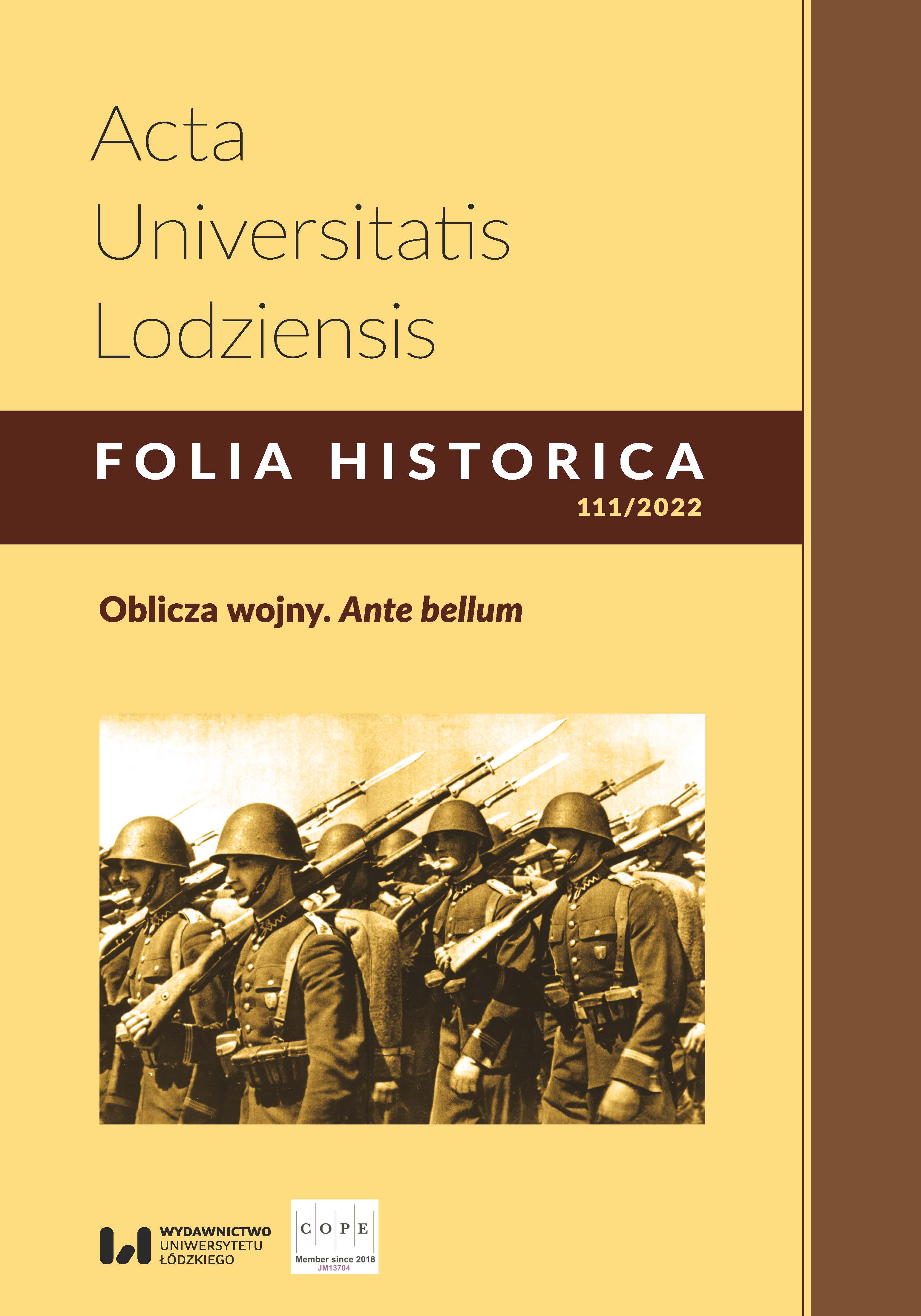Spies, fortifications, dislocations. The Austro-Hungarian consulate in Warsaw and the military issues in the years 1908–1914
DOI:
https://doi.org/10.18778/0208-6050.111.08Keywords:
spies, Russian–Poland, Austro-Hungary, diplomacy, World War I, Russian armyAbstract
In the face of the deterioration of relations between Russia and Austria–Hungary, which took place after the Bosnian annexation crisis in 1908, both great powers strengthened their intelligence activity. Also the Austro-Hungarian consulate in Warsaw was visited by people offering their espionage services. Habsburg diplomats approached the offers very cautiously and suspiciously, not knowing whether they were dealing with a provocation or not. Their positive answer for such proposals could spark a diplomatic scandal and international crisis. However, they did not immediately reject such proposals, trying to test in direct talks the sincerity of the intentions of people ready to spy for the Danube monarchy. The consulate also tried to inform the headquarters in Vienna about military issues in Russian–Poland, such as changes in the dislocation of Russian troops, personnel changes in the highest command positions in the Warsaw military district or ongoing fortification works. They drew their knowledge on these topics mainly from the local press, conversations with Poles and Russians, and rumors they heard.
Downloads
References
Österreichisches Staatsarchiv, Abteilung Haus-, Hof- und Staatsarchiv [HHStA], PA XXXVIII, nr 346, 349, 353, 357, 361, 365
Google Scholar
Leopold von Andrian (1875–1951). Korrespondenzen, Notizen, Essays, Berichte, Hrsg. U. Prutsch, K. Zeyringer, Köln 2003.
Google Scholar
Ronge M., Dwanaście lat służby wywiadowczej, przekł. B. Szymczak, posł., przyp. R. Świętek, Warszawa 1992.
Google Scholar
Bachmann K., »Ein Herd der Feindschaft gegen Rußland«. Galizien als Krisenherd in den Beziehungen der Donaumonarchie mit Rußland (1907–1914), Wien 2001.
Google Scholar
Fortyfikacja rosyjska na ziemiach polskich. Stan badań i problemy ochrony, red. A. Gruszecki, Warszawa 1996.
Google Scholar
Moritz V., Leidinger H., Oberst Redl. Der Spionagefall, der Skandal, die Fakten, St. Pölten–Salzburg–Wien 2012.
Google Scholar
Moritz V., Leidinger H., Jagschitz G., Im Zentrum der Macht. Die Vielen Gesichter des Geheimdienstchefs Maximilian Ronge, Sankt Pölten 2007.
Google Scholar
Sadler J., Fische S., Spy of the Century. Alfred Redl and the Betrayal of Austria–Hungary, Barnsley 2016.
Google Scholar
Świętek R., Lodowa ściana, Tajemnice polityki Józefa Piłsudskiego 1904–1918, Kraków 1998.
Google Scholar
Wendland A. V., Die Russophilen in Galizien. Ukrainische Konservative zwischen Österreich und Russland 1848–1915, Wien 2001.
Google Scholar
Downloads
Published
How to Cite
Issue
Section
License

This work is licensed under a Creative Commons Attribution-NonCommercial-NoDerivatives 4.0 International License.
Funding data
-
Narodowe Centrum Nauki
Grant numbers nr 2018/29/B/HS3/02075











